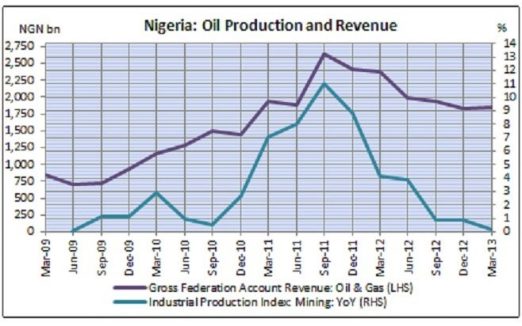I don’t think tomorrow’s speculated industrial action organised by Nigeria Labour Congress (NLC) is a good development for Nigeria. It’s undisputed, the economy is biting hard, and the recent removal of oil subsidy would make it even harder. But, a standoff against a decision that, given the current effect of global economic meltdown, appears almost irreversible, doesn’t seem to me having both feet on the ground for NLC and Nigerians.
Come to think of it, the oil price crisis is a trend that affects almost every country at the moment. I believe, having almost put behind Nigeria top security challenges, such as Boko Haram, the country has achieved significantly in the last one year of unifying against all the odds to vote for a government that Nigerians so much trusted. Yes, challenges lie ahead, most crucial among them is getting through the turbulence of current global economic downturn that left no country untouched. We have lots of work on, among other things, corruption, unity and integration, societal reorientation and educational and economic reforms that would focus on innovations and programs that genuinely drive development.

Don’t be under any illusion. President Buhari cannot and will never achieve all these in one term or two if he has the opportunity. Since the work has just begun, I believe, putting back on track a nearly ripped country should be the focus, and supposedly this is where Buhari-Osibanjo’s efforts and energies are directed. Deregulation in the economic sphere, proper channelling of revenue sources, tougher sanctions are a few measures that could bring about that desirable change. And, none of these would be achieved without all hands on deck for the hardship, hard work and sacrifice of rebuilding a system that was entirely held over by corruption and all forms of crimes.
To cite just an example, Saudi Arabia is a country that has one of the world’s highest oil and foreign reserves, and coincidentally that’s where I earn a living, but with the dawn of oil price crises, the country has already for the first time in decades cut 50 percent of retail oil, from 0.60 ($0.016) of to 0.90 ($0.021) riyal per liter. Though this might not arithmetically seem like a huge amount compared to the price of petroleum in Nigeria, which, with the removal of subsidy stands at N145 ($0.7), it is statistically a significant hike in the Saudi context. In addition to recording the lowest decline of foreign reserve since its peak in 2014, with more than $150 billion down, the country also introduced many economic sanctions to cushion the economic slump in the meantime and be ready for all the challenges in the long term. Put together, this is a country with only about 17% of Nigeria’s population.
Every country that its leaders mean well for the people must adopt similar measures, however proportionate to its economic policies and aspirations of its population. It’s unfortunate, this is coming at the time Nigeria had already had its many years’ feast of undirected governance, for which it could be easy for President Buhari to be the lightning rod. In fact, even if there were no impending economic recession, Nigeria should have expected an exceptional one for the recklessness of its handlers.
Thus, embarking on a nationwide strike at this time is a crucial decision that NLC and all Nigerians should reexamine because many things are at fever-pitch, and the chances are that we might be playing into the hands of unscrupulous individuals who could exploit the fermenting situations to cause havoc to the recuperating nation.